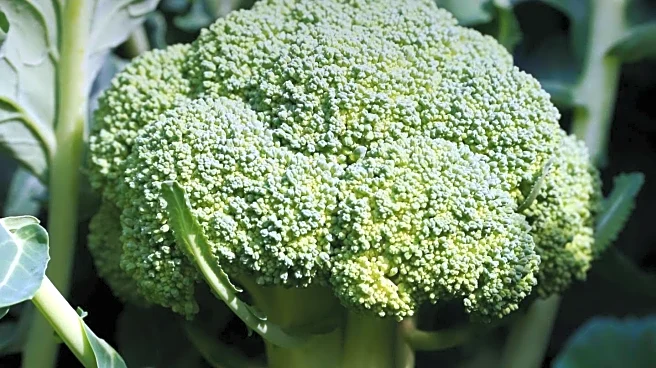What's Happening?
Recent research published in BMC Gastroenterology has found that consuming cruciferous vegetables such as broccoli, cauliflower, and kale can significantly reduce the risk of colorectal cancer. The study analyzed data from nearly 640,000 individuals, revealing that those who consumed 40-60 grams of these vegetables daily had a 20-26% lower risk of developing colorectal cancer. Cruciferous vegetables are rich in phytochemicals like sulforaphane, which activate detoxification processes, reduce inflammation, and repair cellular damage, contributing to cancer prevention.
Why It's Important?
Colorectal cancer is a leading cause of cancer-related deaths in the United States, and its prevalence is increasing among younger adults. The findings of this study offer a promising dietary strategy for cancer prevention, emphasizing the importance of plant-based diets. By incorporating cruciferous vegetables into daily meals, individuals can potentially lower their cancer risk, promoting better public health outcomes. This research supports broader dietary recommendations that advocate for increased consumption of fruits and vegetables to combat various health issues.
What's Next?
The study encourages individuals to integrate cruciferous vegetables into their diets consistently, aiming for at least half a cup daily. Health professionals may use these findings to guide dietary recommendations and cancer prevention strategies. Further research could explore the specific mechanisms by which these vegetables exert their protective effects, potentially leading to new insights into cancer prevention and treatment.
Beyond the Headlines
The study highlights the role of diet in disease prevention, underscoring the potential of simple lifestyle changes to improve health outcomes. It also raises awareness about the importance of dietary education and access to healthy foods, which can be critical in reducing cancer rates and improving overall public health.










